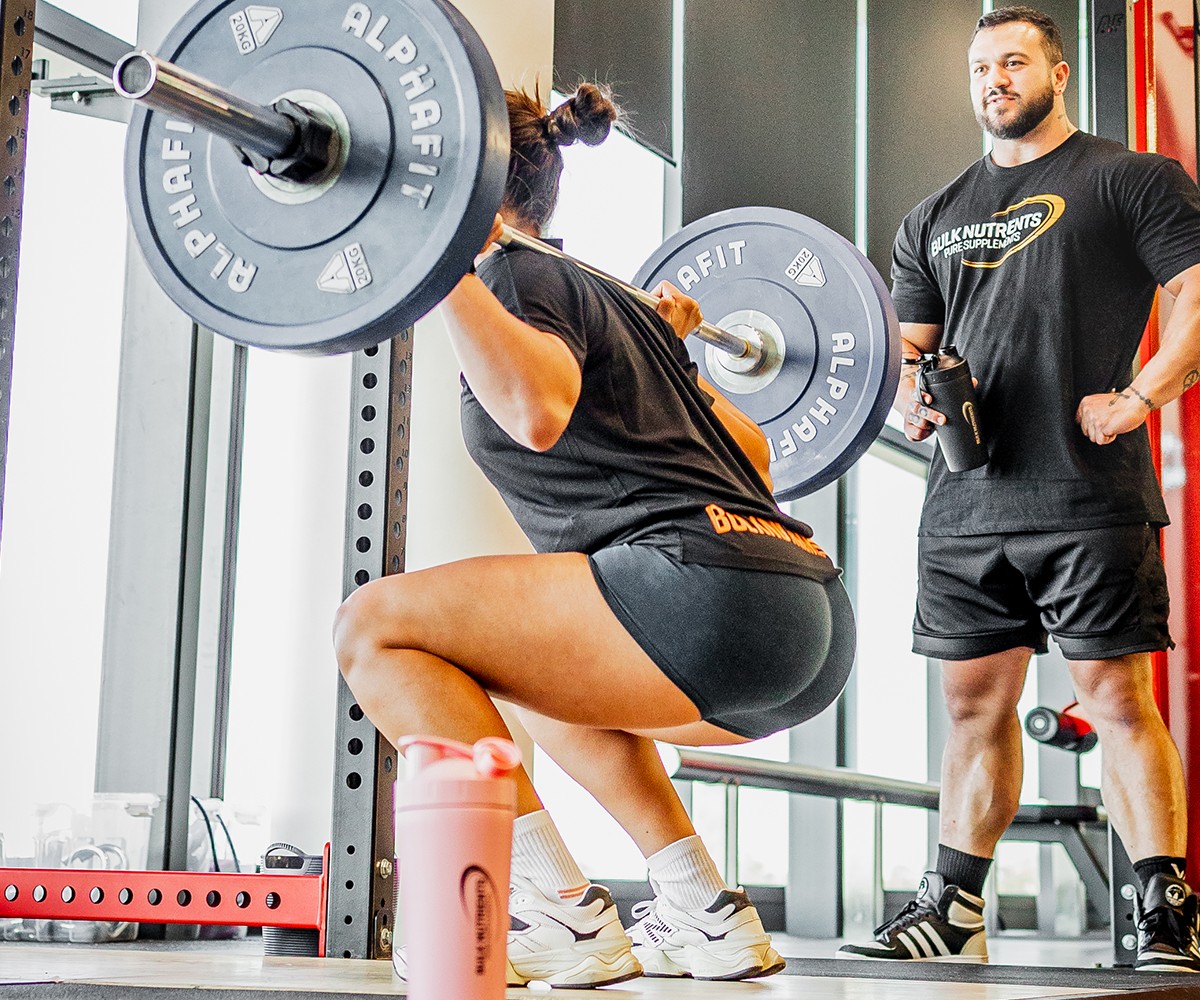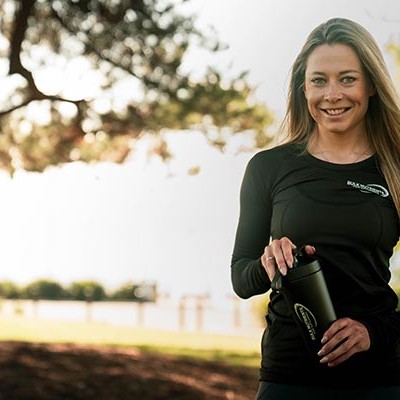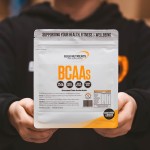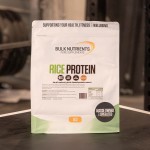Vegan vs Omnivore Diet for Muscle Growth and Strength

Gaining strength and muscle: What science says about vegan vs omnivore diets
We know that muscle growth comes down to getting enough protein, which can be difficult for vegans given plant-based sources don't contain as much. And it's no small number: current protein recommendations for muscle growth is 1.7 grams - 2.6 grams of protein per kilogram of body weight per day.
The other hindrance for vegans is the amino acid leucine; one of three BCAAs and key regulators behind muscle growth. The simple fact is that plant proteins are lower in leucine. Moreover, we need about 40-45 mg of leucine per kilogram of body weight per day. So, somebody who is 80 kilograms will require 3.6 grams of leucine per day.
So, when we talk about their being "truth" to vegans having a hard time growing muscle, this is what we're referring to. But how much of an issue is this really for vegans?
Well, research conducted in 2021 more or less asked this question, endeavouring to find what happens when you match the protein in the diet of a vegan and omnivore, have them perform weight training, give them protein powder supplements, and see who gains more muscle and strength.
Specifically, the untrained young men supplemented with either whey protein powder (the omnivores) whilst the vegans were given soy protein powder. They also consumed diets in whole foods.
The study consisted of 19 habitual vegans and 19 omnivores aged in their 20s. They did a 12 week, twice weekly, resistance training program under supervision from researchers, and consumed ~1.6 grams of protein per kilogram of body weight, per day. The lean mass of their leg, whole muscle, and muscle fibre cross-sectional area was assessed, along with leg press 1RM, both before and after the study.
So, what did they find?
Both the omnivores and vegan groups showed significant increases in their leg mass; all three major parts of the quadriceps! But which group gained more muscle?
They both gained the same!

This led the researchers to conclude that 1.6 grams of protein per kilogram of body weight per day, from either mixed whole foods and whey protein supplementation, or plant-based whole foods and soy protein isolate supplementation, is the same for muscle growth and strength. The researchers add:
"...protein source does not affect resistance training-induced adaptations in untrained young men consuming adequate amounts of protein."
Now it's important to point out that these subjects were untrained, and that doesn't necessarily translate into all populations. One of the study's authors, Hamilton Roschel, added this commentary:
“Aging entails a phenomenon known as anabolic resistance, meaning a suboptimal anabolic response to the stimuli provided by diet and exercise compared with young people. Optimal response is possible in older people only if their protein intake is higher than that of the average healthy youngster. So, we should be cautious about generalising our findings for the entire population.”
In other words, if you're an older vegan, eat EXTRA protein and consume more leucine! And such comments are in line with previous research we've told you about here before; vegans may need to eat more protein than is recommended just in case. And this is particularly relevant to older vegan gym-goers.
But the bottom line is that by getting adequate protein and specifically, leucine, muscle growth shouldn't be different for vegans and omnivores. And we've catered for vegans here at Bulk Nutrients, with at least three products that aim to boost your protein and leucine requirements:
- Future Whey -- contains 22 grams of protein and 3.4 grams of leucine!
- BCAAs -- boasting 2.5 grams of leucine a serve.
- Soy Protein -- ~25 grams of protein depending on flavour, and 2.3 grams of leucine.
Honourable mentions are our Pea Protein or Rice Protein variety!

But it boils down to this: if you're a vegan, make sure you eat enough protein, consume enough leucine via your vegan protein supplements -- and rub this article in the face of your omnivore friends!

Dayne Hudson
Like many, Dayne was once desperate to lose weight and get into shape. But everyone he asked, everything he read, lead to the same place... nowhere.
His journey started there - researching science journals and completing a Sports Nutrition Specialist qualification so he could make weight loss easier.
References:
- Burd NA, Tang JE, Moore DR, Phillips SM. Exercise training and protein metabolism: influences of contraction, protein intake, and sex-based differences. J Appl Physiol (1985). 2009 May;106(5):1692-701. doi: 10.1152/japplphysiol.91351.2008. Epub 2008 Nov 26. PMID: 19036897.
- Helms ER, Aragon AA, Fitschen PJ. Evidence-based recommendations for natural bodybuilding contest preparation: nutrition and supplementation. J Int Soc Sports Nutr. 2014 May 12;11:20. doi: 10.1186/1550-2783-11-20. PMID: 24864135; PMCID: PMC4033492.
- Mero A. Leucine supplementation and intensive training. Sports Med. 1999 Jun;27(6):347-58. doi: 10.2165/00007256-199927060-00001. PMID: 10418071.
- Stokes T, Hector AJ, Morton RW, McGlory C, Phillips SM. Recent Perspectives Regarding the Role of Dietary Protein for the Promotion of Muscle Hypertrophy with Resistance Exercise Training. Nutrients. 2018;10(2):180. Published 2018 Feb 7. doi:10.3390/nu10020180
- Tipton KD, Wolfe RR. Protein and amino acids for athletes. J Sports Sci. 2004 Jan;22(1):65-79. doi: 10.1080/0264041031000140554. PMID: 14971434.
- van Vliet S, Burd NA, van Loon LJ. The Skeletal Muscle Anabolic Response to Plant- versus Animal-Based Protein Consumption. J Nutr. 2015 Sep;145(9):1981-91. doi: 10.3945/jn.114.204305. Epub 2015 Jul 29. PMID: 26224750.
Related Blogs

Can I Still Grow Muscle at the Same Rate on a Vegan Diet?
Posted by Dayne Hudson
Estimated reading time: 6 minutes

Vegan Protein Powder vs Whey Protein for Muscle Gains
Posted by Dayne Hudson
Estimated reading time: 5 minutes

Popular Diets Explained
Posted by Nicole Frain
Estimated reading time: 6 minutes

































